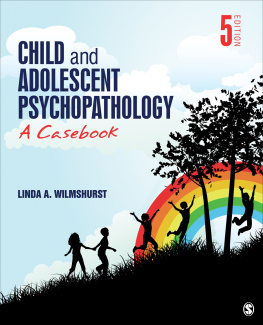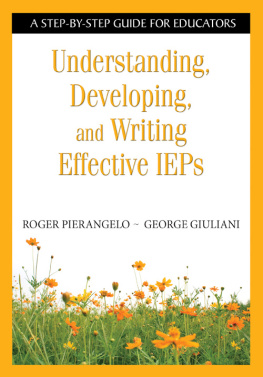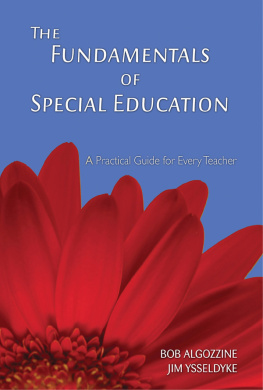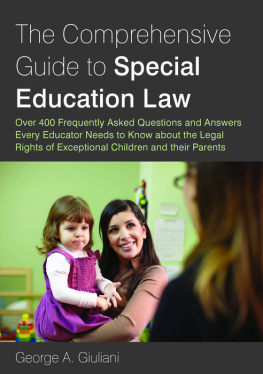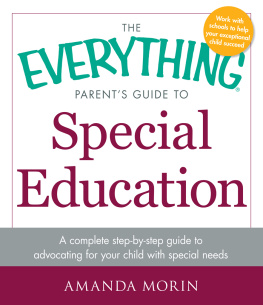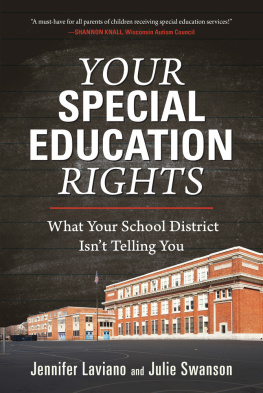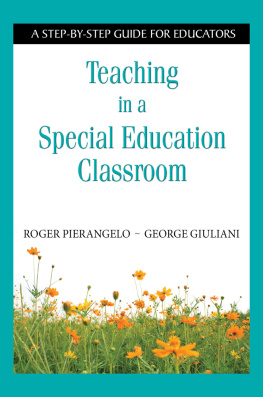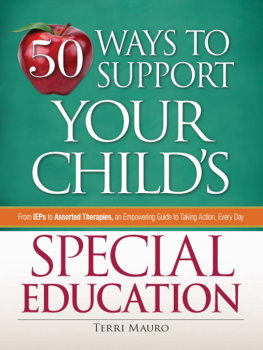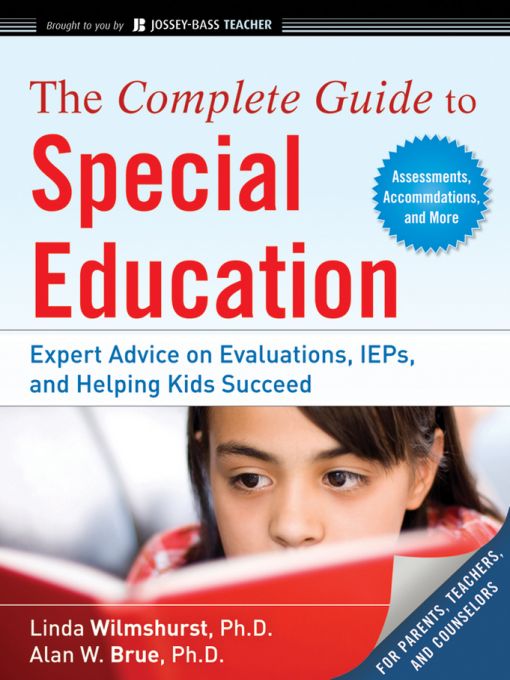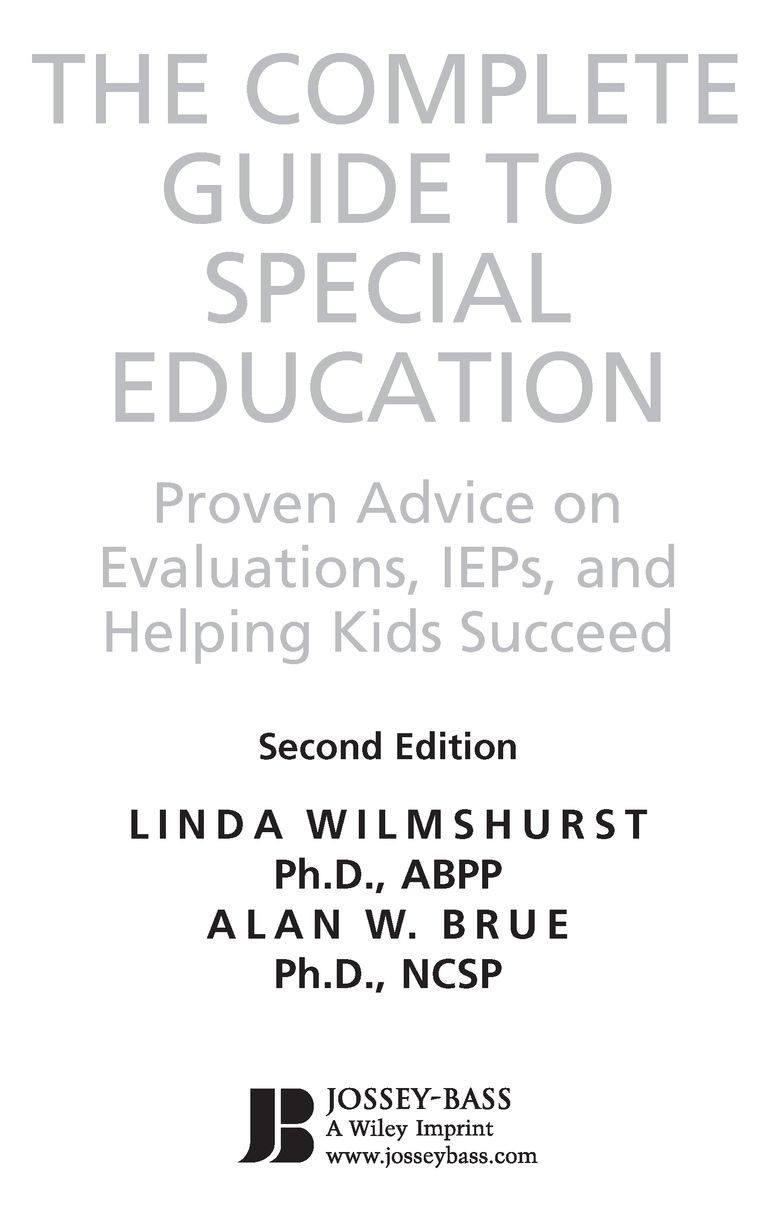Table of Contents
JOSSEY-BASS TEACHER
Jossey-Bass Teacher provides educators with practical knowledge and tools to create a positive and lifelong impact on student learning. We offer classroom-tested and research-based teaching resources for a variety of grade levels and subject areas. Whether you are an aspiring, new, or veteran teacher, we want to help you make every teaching day your best.
From ready-to-use classroom activities to the latest teaching framework, our value-packed books provide insightful, practical, and comprehensive materials on the topics that matter most to K-12 teachers. We hope to become your trusted source for the best ideas from the most experienced and respected experts in the field.
ABOUT THIS BOOK
In the Best Interests of the Child
Our book, based on the perspectives of two school psychologists, focuses on how to optimize childrens experiences in the educational system. Although we dedicate our book to children with special needs, we believe that all children, parents, and teachers can benefit from our recommendations and suggested interventions. In regard to children who require special education services, we provide explanations of the laws, procedures, and policies that are involved in identification and assessment of these children and, ultimately, in providing interventions for them.
Children live in a world that can provide rich resources to maximize their learning or minimize barriers to their success. If a child has a disability, then support from family, educators, extended family, the community, and even governmental laws can provide the resources needed for success. Our goal is to provide concerned parents and educators with the information they need to help make success a reality for all children.
ABOUT THE AUTHORS
Linda Wilmshurst, Ph.D., ABPP, is a Diplomate in Clinical Psychology (American Board of Professional Psychology) and is licensed as a psychologist and school psychologist in North Carolina. Linda has practiced psychology as a clinical child and adolescent psychologist and school psychologist for many years in both Canada and the United States. Linda is an associate professor in the psychology department at Elon University, where she teaches courses in child and adult psychopathology, developmental psychology, psychology in the schools, and introductory psychology. In her current research projects, she is investigating resilience, self-concept, and time perception in college students with ADHD. Linda is the author of a number of books, including Child and Adolescent Psychopathology: A Casebook ; Abnormal Child Psychology: A Developmental Perspective; Essentials of Child Psychopathology; and A Parents Guide to Special Education, which she co-authored with Alan Brue.
Alan W. Brue, Ph.D., NCSP, received his masters, specialist, and doctoral degrees in school psychology (with a specialization in gifted education) from the University of Florida. He works as a school psychologist for the Bartow County School System in Georgia and as a core faculty member in the Harold Abel School of Social and Behavioral Sciences at Capella University, where he teaches and develops graduate courses in psychopathology, child and adolescent psychology, learning theories, intellectual and behavioral assessment, and research methods. In addition, Alan has worked as director of professional standards for the National Association of School Psychologists and as a radio broadcaster. Co-author of A Parents Guide to Special Education (with Linda Wilmshurst), he has extensive knowledge of assessment, special education laws, and school organization, and is keenly aware of the needs of children and parents. Alan is a Nationally Certified School Psychologist.
ACKNOWLEDGMENTS
I thank my children, Luke and Rachel, for their continued support and inspiration and Rachel for providing the artwork for some of the figures. I thank my co-author, Alan, who makes collaboration an effortless and rewarding experience. This book is dedicated to all the children and youth with special needs who continue to amaze me with their ability to master difficult challenges and to the parents and teachers who support them in making their accomplishments possible. May our book provide information that will guide your efforts and provide increased opportunities for children and youth to overcome the challenges that they face and achieve the success that they deserve.
Linda Wilmshurst
Jett, I love you. Thank you for always being there; you are inspiring. I thank Linda Wilmshurst for continuing to be a great writing partner; our collaboration has been a very enjoyable process. I thank my familymother, Doris, and sisters, Laura and Jenniferfor their ongoing support. To Dr. Thomas Oakland, the finest mentor and role model one could ever have, I am very grateful to you for your support and for your words of wisdom. My thanks go to Dr. Scott Smith, Wanda McPherson, R. David Freeman, and my school psychologist colleagues at the Bartow County School System for their assistance with the RTI forms. My thanks also go to Dr. Laren Winter and my teaching colleagues at Capella University for their dedication to training outstanding future school psychologists. And finally, I send special thanks to the students, parents, and teachers whom I have worked with and learned from over the years. This book is for you.
Alan W. Brue
INTRODUCTION
COLLABORATION VERSUS CONFRONTATION: SPEAKING THE SAME LANGUAGE
To begin, lets meet Jeremy, a second grader who is not performing as expected academically or socially.
Jeremy is not doing well in school. He does not complete his seatwork, and he seems to have problems getting along with the other children. His teacher is concerned because he seems to be falling behind. When she meets his parents for the first time at the first parent-teacher interview of the term, they are shocked that he is not doing well academically, given that he is a bright and engaging youngster who seems to gets along very well with everyone he meets.
The teacher is probably a bit nervous about meeting Jeremys parents and having to give them less-than-positive news. She may be thinking, What went wrong? Why is this child not succeeding? I must be able to do something that can change the situation. Have I tried everything? Maybe if I just give him more time, he will catch up.
At the same time, Jeremys parents may also be a bit nervous meeting the teacher for the first time and hearing what she has to say about their child. After they listen to the initial summary, they may be asking themselves, What went wrong? Why is my child not succeeding? We must be able to do something that can change the situation. Have we tried everything? Maybe if we just wait a bit longer, things will work themselves out.
In this scenario, both Jeremys teacher and his parents are concerned about Jeremy, who is not doing well. After the initial interview, the parents also share the teachers concern about Jeremys school performance. How can all of them best help him?
This book has been inspired by our work with children who have special needs and the parents and teachers who are concerned for their welfare in a system that can become bogged down with legalese language, definitions, and terminology that can confuse and alienate those who most want to do the best thing. The book provides information rarely covered in other special education books, such as an introduction to the assessment process, assessment instruments used by school psychologists, and checklists that can help parents and educators obtain a better understanding of why a child may be experiencing problems.


